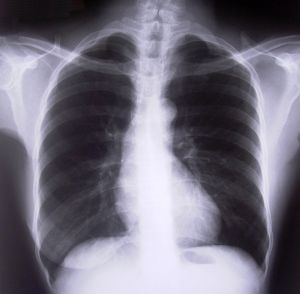Lung cancer is one of the most serious types of cancer, and a recent study of more than 3,000 cancer patients and their clinicians published in the Journal of Thoracic Oncology revealed that lung cancer patients overall were reported as being more difficult to treat, having higher symptoms, and having a poorer quality of life when compared with patients suffering from other types of cancer including breast cancer; colon cancer and prostate cancer. 
Our Boston disability lawyers know that lung cancer symptoms can include coughing, difficulty breathing, chest pain, chronic respiratory infections and many other serious health effects. The respiratory process affects almost all of the systems in the body, so a person suffering from lung cancer may be unable to do many activities of daily living as well as many tasks that would be required to work. The cancer also typically necessitates invasive and aggressive treatment, including surgery, chemotherapy and radiation. All of these treatment methods can have debilitating side effects.
Lung Cancer Patients May Be Unable to Work
Because of both the symptoms of the cancer and the serious side effects of the treatment, many lung cancer patients are not able to work when they are undergoing treatment or on an ongoing basis as a result of their medical condition.
When a person cannot work because of lung cancer, he or she may be eligible for benefits from the Social Security Disability Insurance (SSDI) program or may be eligible for Supplemental Security Income (SSI). While SSDI requires a sufficient work history and SSI is a needs-based and means-tested program, both SSI and SSDI have the same definition of “disabled” that a person with lung cancer must meet in order to be eligible to receive benefits.
To qualify for SSI or SSDI benefits, a lung cancer patient must have a medical condition that is either expected to be fatal or that has (or will) last for 12 months or longer. A lung cancer patient also must meet the criteria found in the “Blue Book” or SSA listing of impairments.
Lung cancer is addressed in section 13.14 of part A, Adult Impairments. A patient can qualify for disability benefits if he or she has non-small-cell carcinoma that is inoperable, recurrent; unresectable or metastatic (which means it has spread beyond the hilar nodes). A person can also qualify for SSD benefits if he or she has small-cell carcinoma or carcinoma of the superior suculus with multimodal antineoplastic therapy (this is considered a covered disability until at least 18 months from the date that a person is diagnosed).
Patients applying for SSDI benefits based on lung cancer will need medical proof that they actually have this type of cancer and that they meet the criteria. In 2011, approximately 26,500 people received SSDI benefits for a diagnosis of lung cancer, trachea cancer or bronchus. Lung-cancer is the third-highest type of cancer that leads to eligibility for SSD benefits based on a diagnosis of cancer, with breast and colon cancer accounting for the number one and number two cancer-related diagnoses for SSD beneficiaries.
If you are considering filing for SSDI in Massachusetts, call for a free and confidential appointment at (617) 777-7777.
More Blog Entries:
SSDI and Private Disability Insurance, Boston Social Security Disability Insurance Blog, September 30, 2013
 Massachusetts Social Security Disability Lawyers Blog
Massachusetts Social Security Disability Lawyers Blog

